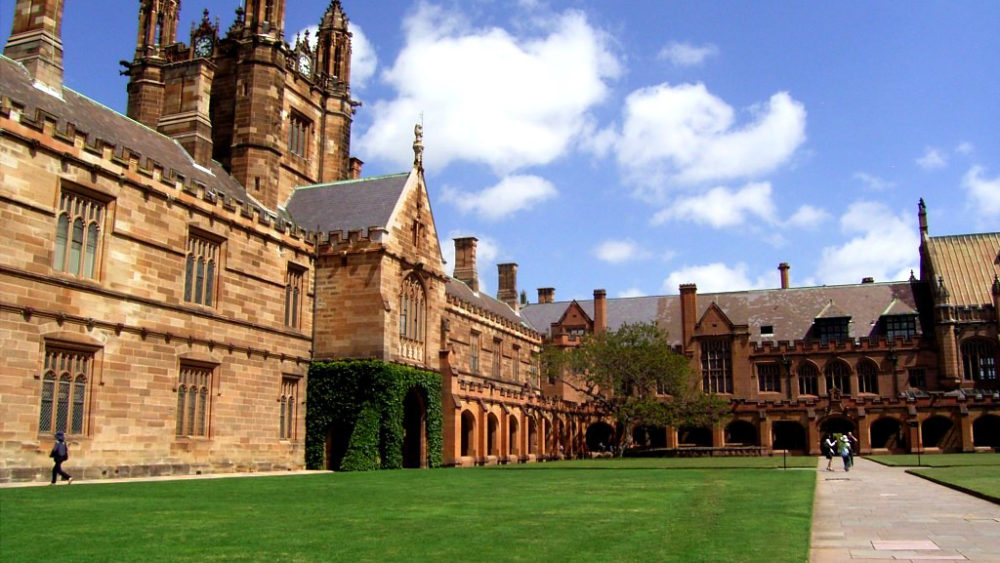University of Sydney students have been warned to beware of a “dangerous pseudo-Christian cult known as Shincheonji,” which has been recruiting people by conducting surveys around various universities in Australia and New Zealand.
Members of the group, also known as Shincheonji Church of Jesus the Temple of the Tabernacle of the Testimony, or SCJ, believe its founder Lee Man-hee is the appointed successor of Jesus Christ.
“This group preys on young, growing Christians and those investigating Christianity by offering ‘Bible studies’ which operate like intensive classes which students attend three times per week,” senior staff worker Brian Leung wrote in an email to a group of students who belong to the Evangelical Union (EU) on campus.
“They keep their activities under the radar by telling students not to tell their family and friends about these Bible studies, by warning students not to ‘teach’ others and by teaching that it is okay to lie. Because their initial teaching is not obviously heretical or a denial of orthodox Christianity, and because they insist that they teach from the Bible (albeit from obscure prophecies and parables), students are often not able to discern that they have joined a cult group.”
The rest of the email gives specific advice on how to recognise and avoid cult groups and what to do if they or someone they know is in a cult group under false teaching.
Leung told Eternity he decided to act after he became aware two weeks ago that six students had been involved in this group over the past 12 months. Four had pulled out of the group but two others are still involved.
“Students are often not able to discern that they have joined a cult group.” – Brian Leung
Asked why SCJ is considered dangerous, Leung said its methods are highly manipulative. “The thing that differentiates them from legitimate Christianity is there is a lot of spiritual pressure to give a lot of money to these groups,” he said.
“They operate on a model that is really about controlling people. If you don’t conform to their particular doctrine, then there’s a lot of social pressure and guilt that is laid on people.”
The time commitment involved in attending these groups three times a week, and sometimes every day, is a way of taking them away from their existing friends and family, he said.
“All of those techniques are ways of controlling people, and I think that’s a risk because then people are being cut off their resources and their social supports as well.”
Leung said SCJ had been very successful at convincing people not to share about their activities.
“Usually the excuse is ‘we don’t want to be misunderstood … They won’t understand so you shouldn’t share about what you’re doing’, so I think that’s not a healthy thing.”
“They feel quite betrayed because they’ve been deceived by them.” – Brian Leung
Leung said SCJ teaches that it is the only true church and recruiting others into their group is a requirement of membership.
“Then, the most outright heresy would be their claim that Jesus has already returned in the form of their head pastor and leader of that group [Lee Man-hee].”
Leung has spoken with some of the students who were, or still are, involved with SCJ.
“The thing that has been most upsetting for them has been the fact they’ve gone along to this group and, in many cases, they’ve put quite a substantial commitment of time into it – because they’ve been going along for six or eight hours a week, for four to six months,” explains Leung.
“As they’ve found out that they’ve been taken in by a group that is actually not Christian at all, then they feel quite betrayed because they’ve been deceived by them.
“Then the real question is, ‘how could God let me get so far into this group and not protect me from them?’ Also, the question of ‘how do I know that what I believe is actually true? If I could have gone along for such a long time and not realised, what’s to say that all the rest of the teaching I’ve got might also be undermined?’”
As well as helping the students to debrief and realise it is not necessarily their fault they were deceived, Leung is trying to make sure these students are being looked after in good, healthy churches, so “they are able to be open about their faith and where they’re at and have conversations with their elders or pastors or others who are around them.”
He and a female staff worker are also counselling the two students who are continuing to attend the groups.
Email This Story
Why not send this to a friend?


